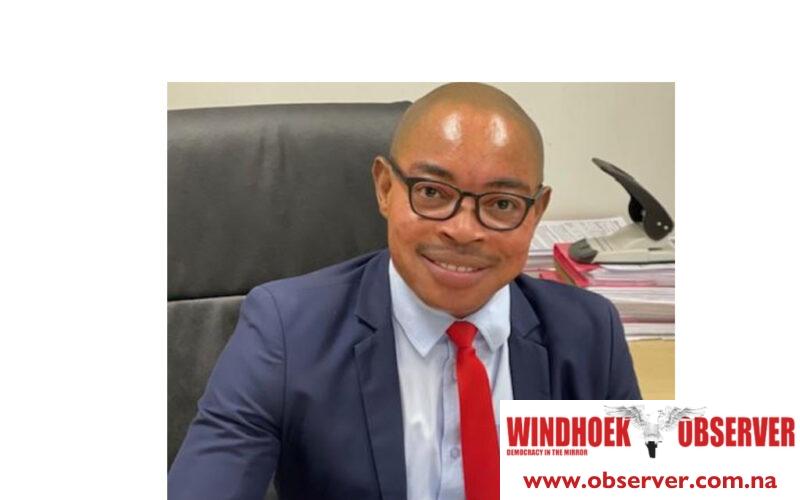JOSEF KEFAS SHEEHAMA
It is time for Namibia to establish an Independent State Holding Enterprise rather of passing down duties to the Prime Minister, which could threaten the separation of powers due to a lack of check and balances. As a result, it is critical to set up a separate entity to overhaul the current model of operating State-Owned Enterprises, which is deemed inefficient due to bureaucratic interference that weaken both SOE governance and performance.
It is commendable that the government aspires to promote governance and compliance among state-owned enterprises (SOEs) by enhancing or re-engineering the Public enterprises Governance Act (PEGA) of 2019. This is a commendable initiative, but it may backfire if not managed properly. To manage state-owned enterprises (SOEs) that are impervious to political pressure, I propose that Namibia establish an independent, impartial, and self-governing institution. Appointments should be based on industry experience, persons with possible conflicts of interest should be held to explicit, enforceable time limits, and the public interest should always take precedence above political gain or personal enrichment. Many board recommendations are made on the basis of political affiliation rather than credentials. This weakens both institutional functioning and public trust. Boards must reflect the country’s diversity, sagacity, and moral depth.
By transforming public enterprise governance to improve transparency, accountability, and efficiency through structural, procedural, and institutional changes, the holding entity can reimagine the business environment and economic appeal, compelled SOEs to rethink current strategies for attracting talent and investment.
Therefore, in my opinion, giving the prime minister complete control over SOE’s appointment of board members, CEOs, senior management, and the reappointing and suspension will result in over-centralization and capacity strain because the prime minister’s office might not have the specialized technical knowledge needed to manage such a diverse range of businesses.
The Namibia Public-Private Forum (NamPPF), which was held on October 23–24, 2025, underscored the critical importance of implementing quick action to bridge the gap between governmental strategy and business performance. Instead of centralization by the prime minister’s office, this can only be accomplished by autonomous state-holding enterprise. They may develop and implement PPP frameworks that promote ethical decision making, competitive and fair procurement, effective public service delivery, and the long-term profitability and sustainability of PPP programs by addressing efficiency and good governance requirements. While recognizing the transfer of full autonomy to the prime minister over SOEs as a positive step toward improved coordination and an important milestone toward streamlining oversight and improving SOE governance, the question remains whether it will address current SOE issues such as political interference, corruption, and mismanagement. In light of this, I believe that governments should aim to build straightforward and standardized regulatory frameworks within which SOEs can operate, while also providing SOEs complete operational autonomy to achieve their stated purposes. Governments should avoid interfering with SOE administration and articulating SOE objectives in a largely opaque approach.
Creating an independent state-holding governing body aims to promote separation of powers, establish a check and balance mechanism, and address current weaknesses. There is an urgent need to solve the issues that these SOEs and the economy face, as well as a strong desire for the government to step up and take turnaround measures seriously. The initiative has the ability to do this if carried out rather than controlled by the prime minister’s office. Political interference should be avoided in order to create a suitable economic environment, and the independent state holding body requires autonomy and independence to operate efficiently and achieve performance standards. Therefore, State Owned Enterprises (SOEs) will be crucial to Namibia’s economy and a means of attaining better economic growth and poverty reduction. Achieving social objectives and ensuring the best possible performance of the SOEs depend on sound governance mechanisms.
However, for many years, the SOE’s performance has been below par, marked by ineffective operations, weak financial sustainability, and inadequate governance. The lawmakers should vote on the establishment of an independent body with a comprehensive long-term strategy for SOEs and the enactment of segregation of duties for the entity’s mandate, supervision, and operation in order to address these regrettable shortcomings rather than giving the prime minister’s office more authority.
Moreover, the literature analysis identified additional solutions for centralized ownership, such government ownership entities and government holding enterprises. While Indonesia, France, and the United Kingdom have chosen for ownership agency, Singapore, Malaysia, Vietnam, and Finland have established holding entities. Temasek Holdings of Singapore and Khazana Nasional of Malaysia tend to be cited as extremely successful models of holding enterprises that have successfully introduced private sector discipline to the SOEs under their control while remaining state-owned. The end result has been significant improvements in both governance and efficiency. The independent body for State-Owned Enterprises will level the playing field by separating the government’s policymaking and regulatory functions from the commercial operations of State-Owned Enterprises, rather than allowing the prime minister to focus on SOEs and lose sight of the primary task of overseeing the work of the government’s inter-ministerial and inter-governmental levels. Transfer ownership of each SOE to the holding entity through a share transfer in which the government acquires shares in the holding enterprise in consideration for its stake in each SOE. This eliminates the need for hefty funding for this endeavor.
In conclusion, the Prime Minister has many tasks, leaving little time for the meticulous oversight required to ensure that SOEs are sustainable, well-run, and have a clear separation of powers.
As a result, it is critical to take early action to execute the reform because doing so will accelerate the pursuit of the agreed-upon changes that would improve the processes, systems, practices, and procedures by which entities are regulated and administered.
This is because the creation of an independent state entity to oversee the SOEs will benefit both the government and the Namibian people.




